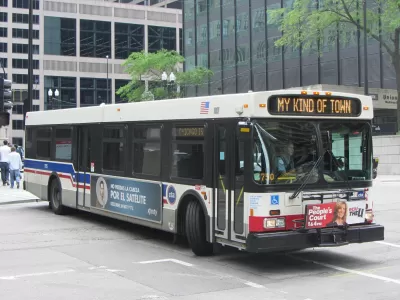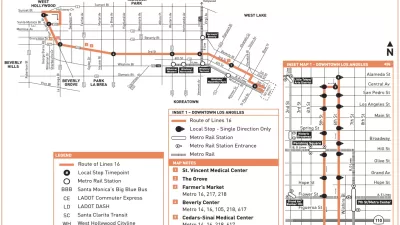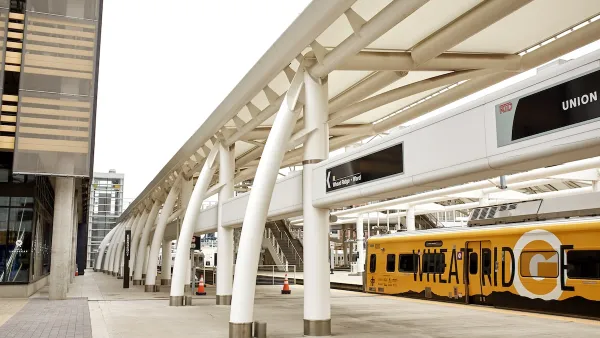Buses are often the best tool for making a dynamic, equitable city, but they're in a period of decline that shouldn't be allowed to become a death spiral.

Public transit in general is on the decline in the United States, and buses in particular have seen sharp drop-offs in travel speed, investment, and ridership. "Nearly 90 percent of commuters in this country drive private cars, and in many urban areas traffic congestion—i.e., wasted time, gas, and money—is getting worse," Laura Bliss writes for CityLab.
In most American cities, traffic congestion is slowing down buses as well, but there are good reasons to keep investing in buses. Not only are they cheaper and more versatile than rail and point-to-point transit, but also "buses can carry large numbers of people in a compact amount of road space. They don’t require special rights-of-way (though that’s sometimes ideal)," Bliss writes.
The recession saw cuts to bus funding that, in many cases, never got replaced during the recovery. And while some cities opted to invest in other forms of transit, the results have been mixed. "Even some cities on rail-building bonanzas, such as L.A. and Denver, are watching transit ridership decline across the board, in part because investment in buses has trailed so far behind the commitment to trains," Bliss argues. As people flee buses and services decline, their constituency gets smaller and less powerful. "They are disproportionately people of color, reinforcing the racial stigma associated with the bus in many cities," Bliss writes.
FULL STORY: Love the Bus, Save Your City

Maui's Vacation Rental Debate Turns Ugly
Verbal attacks, misinformation campaigns and fistfights plague a high-stakes debate to convert thousands of vacation rentals into long-term housing.

Planetizen Federal Action Tracker
A weekly monitor of how Trump’s orders and actions are impacting planners and planning in America.

In Urban Planning, AI Prompting Could be the New Design Thinking
Creativity has long been key to great urban design. What if we see AI as our new creative partner?

King County Supportive Housing Program Offers Hope for Unhoused Residents
The county is taking a ‘Housing First’ approach that prioritizes getting people into housing, then offering wraparound supportive services.

Researchers Use AI to Get Clearer Picture of US Housing
Analysts are using artificial intelligence to supercharge their research by allowing them to comb through data faster. Though these AI tools can be error prone, they save time and housing researchers are optimistic about the future.

Making Shared Micromobility More Inclusive
Cities and shared mobility system operators can do more to include people with disabilities in planning and operations, per a new report.
Urban Design for Planners 1: Software Tools
This six-course series explores essential urban design concepts using open source software and equips planners with the tools they need to participate fully in the urban design process.
Planning for Universal Design
Learn the tools for implementing Universal Design in planning regulations.
planning NEXT
Appalachian Highlands Housing Partners
Mpact (founded as Rail~Volution)
City of Camden Redevelopment Agency
City of Astoria
City of Portland
City of Laramie





























